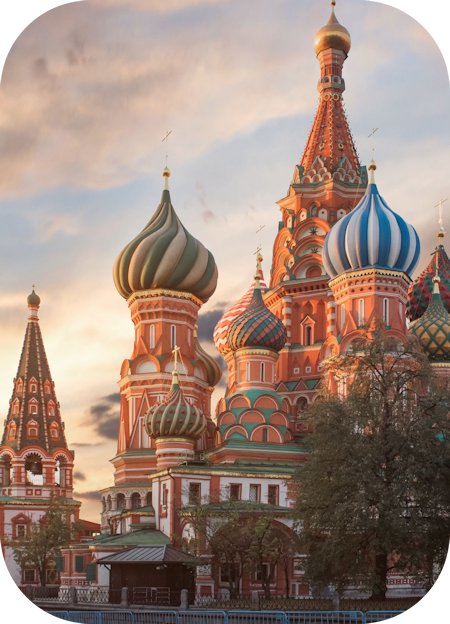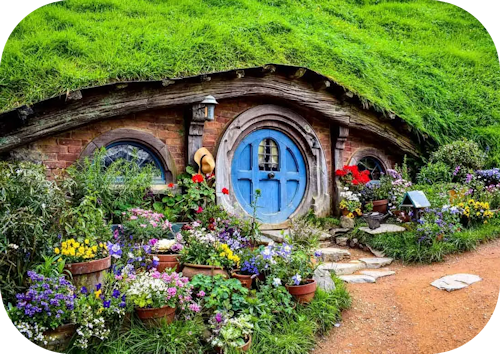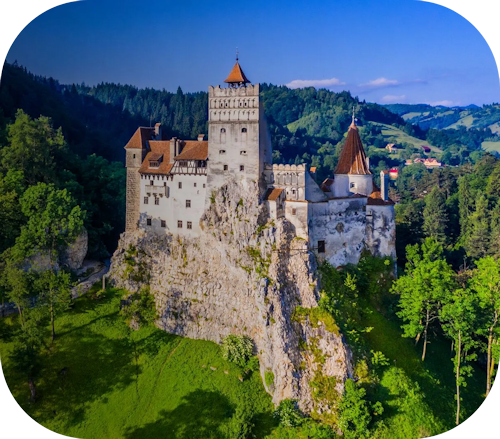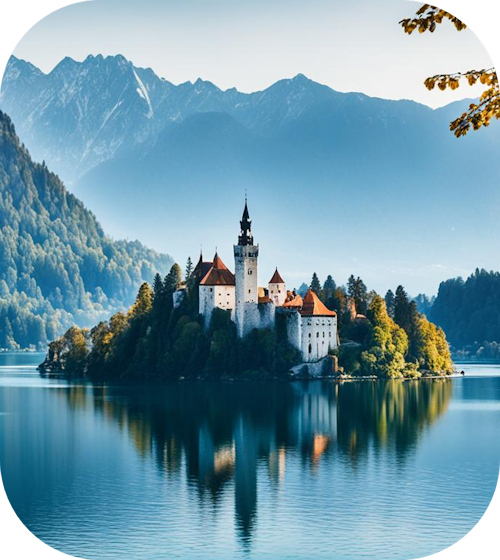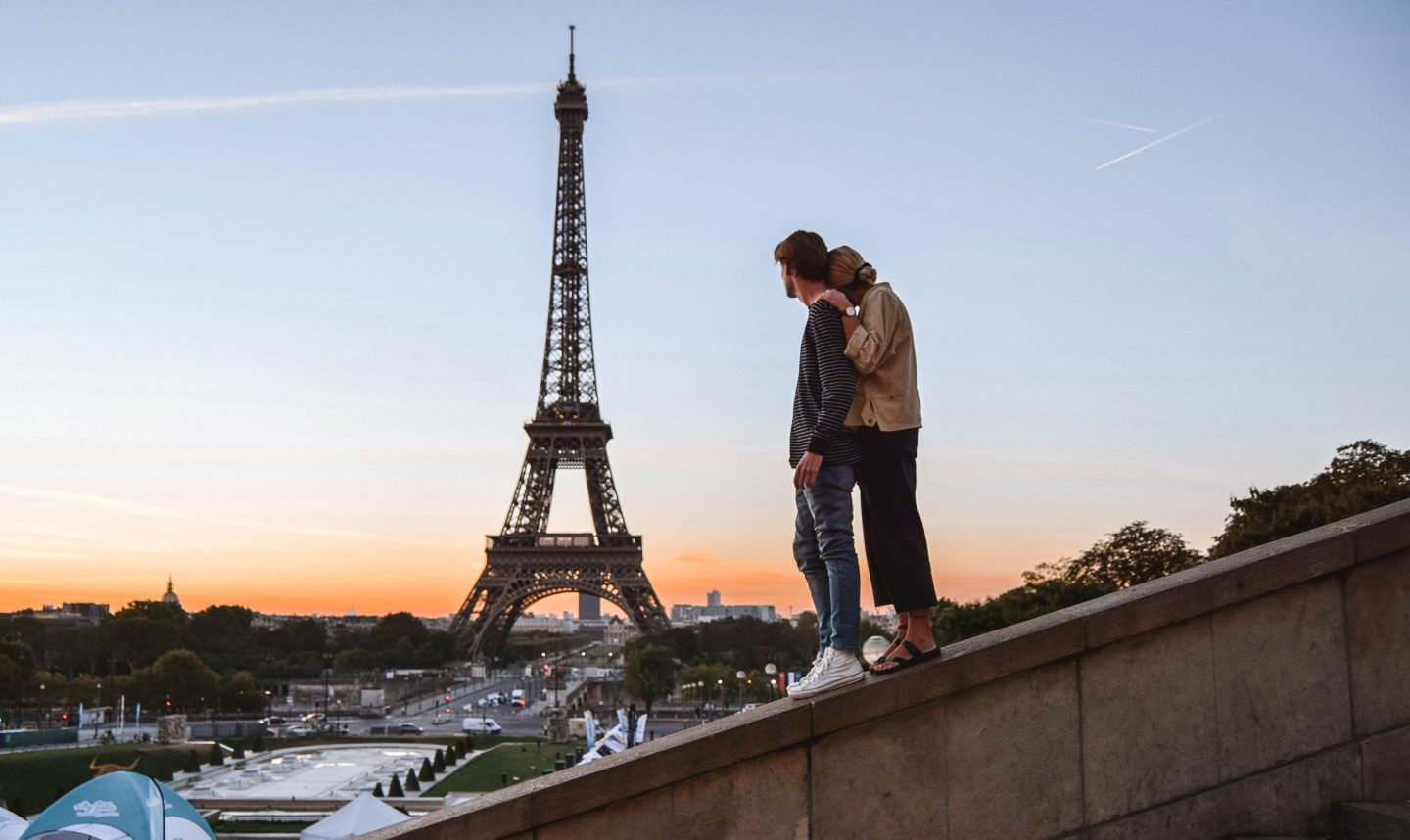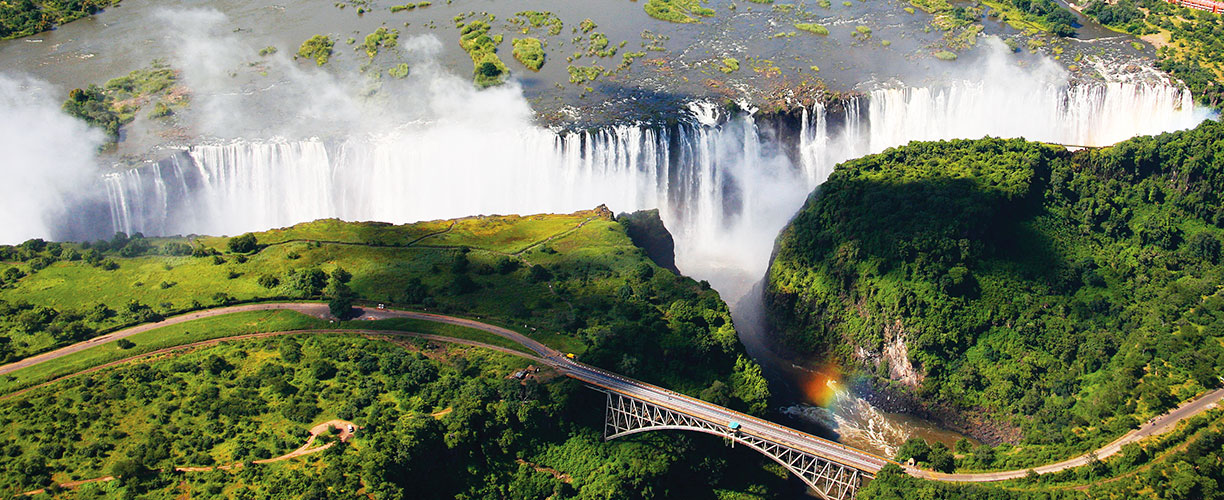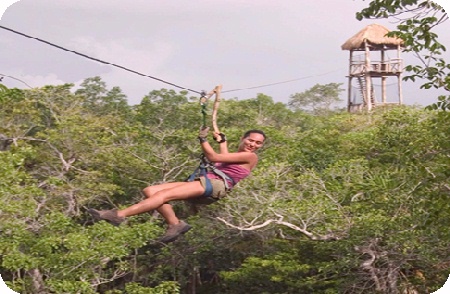|
|
|||||||||||||||||||||||||||||||
TravelIf you never travel to another country or another place that is so different then you will never open your mind up to new possibilities. Traveling to new places, sampling new foods, learning to speak the local language - this is a learning experience that broadens your mind. Women who travel return having learned something about the broader world and have become more intelligent, more confident and more worldly. A caged mind is a narrow mind. Some people travel so much that their minds have become free as a bird, and they have the frequent flier miles to prove it.
Sincerely,
Articles
Deterring Tourists and Damaging Russia's Reputation
By C. G. T. Patto - June 2023. Vladimir Putin's foreign policy decisions and the persistence of conflicts have had a significant impact on Russia's tourism industry and tarnished the country's reputation as a travel destination. Below we examine how Putin's foreign policy and involvement in regular wars discourage tourists from visiting Russia, leading to economic consequences and negative perceptions of the country. By exploring the link between political instability, security concerns, and tourist behavior, we can better understand the challenges faced by Russia's tourism sector and the implications for its international image. Security Concerns and Perception of Instability Putin's involvement in various conflicts, such as the ongoing conflict in Ukraine and military interventions in Syria, has created a perception of instability and insecurity in the region. The presence of armed conflicts and geopolitical tensions deter potential tourists, who prioritize safety and stability when choosing travel destinations. It highlights the impact of negative media coverage and travel advisories on tourist perceptions, leading to decreased interest in visiting Russia. Diminished Tourist Attractions and Accessibility Wars and conflicts can disrupt tourist attractions, infrastructure, and accessibility, further deterring potential visitors. The consequences of military engagements, such as damaged historical sites, restricted access to certain regions, and disrupted transportation networks, negatively affect the overall tourist experience. These factors diminish the appeal of Russia as a destination and limit tourists' ability to explore the country's rich cultural heritage and natural wonders.
Economic Consequences and Decline in Tourism Revenue The decline in tourist arrivals due to political instability and ongoing wars has severe economic implications for Russia. The impact of reduced tourism revenue on local economies, including job losses, decreased business opportunities, and a decline in foreign exchange earnings hurts Russia as a whole. It highlights the significance of tourism as a key sector for economic growth and diversification, emphasizing the need for stable political conditions to support this vital industry. Perception of Russia's Image Putin's foreign policy decisions and involvement in conflicts have resulted in a negative perception of Russia on the international stage. Ongoing wars and geopolitical tensions contribute to a distorted image of the country, characterized by aggression and geopolitical ambitions. It explores the challenges faced by Russia's tourism promotion efforts, as potential visitors may associate the country with instability, geopolitical tensions, and human rights concerns. Rebuilding Reputation and Promoting Stability To mitigate the negative impact on tourism and restore its reputation, Russia's leadership needs to recognize the importance of adopting a more peaceful and cooperative foreign policy approach. It explores the potential for diplomatic initiatives, conflict resolution efforts, and active participation in international forums to project a more positive image of Russia. By fostering stability and emphasizing the country's rich cultural and natural heritage, Russia can rebuild its reputation as an attractive and safe travel destination. Vladimir Putin's foreign policy decisions and the persistence of conflicts have had a detrimental effect on Russia's tourism industry, discouraging potential tourists and damaging the country's reputation. The perception of instability, diminished tourist attractions, economic consequences, and negative image projection pose significant challenges for the tourism sector. By prioritizing stability, peace, and engaging in diplomatic efforts, Russia can rebuild its reputation and position itself as a desirable travel destination. A shift towards a more peaceful foreign policy approach will not only benefit the tourism industry but also contribute to a positive international image and improved relations with other countries.
|
|
||||||||||||||||||||||||||||||
Fantasy-Oriented Real Locations Open to Tourists
Hobbiton (Matamata, New Zealand) Neuschwanstein Castle (Bavaria, Germany) Alnwick Castle (Northumberland, England) Game of Thrones Locations (Various, Northern Ireland) The Wizarding World of Harry Potter (Orlando, Florida, USA & Osaka, Japan) Tolkien Trail (Lancashire, England)
Bran Castle (Romania) The Weta Workshop Experience (Wellington, New Zealand) Ceskż Krumlov (Czech Republic) Eilean Donan Castle (Scotland) Mont Saint-Michel (France) The Shambles (York, England) Skellig Michael (Ireland) Lapland (Finland) Reynisfjara Black Sand Beach (Iceland) Carcassonne (France) Sintra (Portugal) Mount Olympus (Greece) Castillo de Belmonte (Spain) Hallstatt (Austria) King Arthur's Tintagel Castle (Cornwall, England)
Cappadocia (Turkey) Giant's Causeway (Northern Ireland) Bled Castle & Lake Bled (Slovenia) Rothenburg ob der Tauber (Germany) The Forbidden Forest at Puzzlewood (Gloucestershire, England) The Enchanted City (Cuenca, Spain) Edinburgh's Victoria Street (Scotland) Kronborg Castle (Denmark) Glowworm Caves (Waitomo, New Zealand)
Why Tourist Locales in Canada need Bicycle MechanicsCanada is known for its stunning landscapes and outdoor activities, with cycling being an increasingly popular mode of transportation among tourists. During the busy season, many communities across the country welcome visitors who come to explore the great outdoors. With the increase in the number of cyclists, there is a higher demand for bicycle mechanics to ensure that bicycles are safe, reliable, and well-maintained. Bicycle mechanics play a vital role in keeping the cycling community functioning smoothly. During the busy tourist season, many visitors rent bicycles to explore the surrounding areas. These bicycles are prone to wear and tear due to frequent use, and mechanics are required to ensure that the bicycles are in good working condition and to address any issues that may arise. Additionally, many tourists bring their bicycles with them when they visit. These bicycles may require repairs or maintenance due to the long journey or the rugged terrain. Bicycle mechanics are needed to provide tune-ups, repairs, and other services to keep these bicycles in top condition. By providing prompt and efficient services, bicycle mechanics can help tourists enjoy their cycling experiences to the fullest. Bicycle mechanics are also essential to the overall safety of cycling communities. In Canada, there are many designated bike paths and cycling routes that are popular among tourists. Mechanics play a crucial role in identifying and addressing any issues related to the bicycles that could compromise the safety of the cyclists. These issues could be related to the brakes, tires, or other critical components that require attention to prevent accidents and injuries. Lastly, the presence of bicycle mechanics can also benefit local businesses. By ensuring that bicycles are in good working condition, tourists can enjoy their cycling experiences without interruption. This, in turn, can lead to increased foot traffic for local businesses, such as restaurants, cafes, and shops, as cyclists tend to explore the communities they visit. In conclusion, bicycle mechanics play a critical role in keeping the cycling community functioning smoothly during the busy tourist season in Canada. Their services are essential to ensuring that bicycles are safe, reliable, and well-maintained, which is vital to the overall safety and enjoyment of cycling communities. Communities that rely on tourism should invest in the services of bicycle mechanics to ensure a smooth and enjoyable experience for visitors.
Why Learning How to Fix your Bicycle is an Important Tourist SkillLearning to repair your own bicycle is an extremely useful skill to have when traveling and being a tourist. Whether you're exploring a new city, cycling through a scenic countryside, or embarking on a multi-day bike trip, knowing how to fix common bike problems can save you time, money, and stress. Additionally, being able to repair your own bicycle allows you to travel more independently, expand your options for transportation, and explore places that might not be accessible by car or public transit. Save Time and Money When traveling, time and money are often limited resources. By learning to repair your own bicycle, you can save both. If your bike breaks down or has a flat tire, you won't have to wait for a bike mechanic or pay for expensive repairs. Instead, you can quickly diagnose and fix the problem yourself, allowing you to get back on the road and continue exploring. Increased Independence and Flexibility Being able to repair your own bicycle also provides increased independence and flexibility. You won't have to rely on public transportation or expensive bike rentals to get around, and you'll have the freedom to explore at your own pace. Additionally, you can take your bike to places that might not be accessible by car or public transit, allowing you to see more of the local landscape and culture. Access to Remote Areas Bicycles can take you to remote areas that might not be accessible by car or public transit. Knowing how to repair your own bicycle allows you to venture further into these areas, expanding your options for travel and exploration. For example, you might be able to cycle to a secluded beach, a hidden waterfall, or a remote village, where you can experience the local culture and scenery in a unique way. Cultural Immersion Cycling is a great way to immerse yourself in the local culture and experience a destination in a more authentic way. By cycling through a city or countryside, you can see and interact with people, places, and things that you might not encounter if you were traveling by car or public transit. Additionally, cycling can be a great way to connect with locals who share your passion for cycling, allowing you to learn more about the local culture and community. Conclusion Learning to repair your own bicycle is an extremely useful skill to have when traveling and being a tourist. It can save you time and money, provide increased independence and flexibility, and allow you to explore remote areas and immerse yourself in the local culture. Additionally, knowing how to repair your own bicycle can provide a sense of accomplishment and satisfaction, and can be a great way to connect with other cycling enthusiasts around the world. So next time you're planning a trip, consider bringing your bicycle along and brushing up on your bike repair skills by getting bicycle mechanic lessons. You never know where your two wheels might take you.
It has never been easier to book a flight to Paris!
May 2021. If you've always dreamed of visiting Paris/France, now is your chance. With COVID numbers dropping significantly in both North America and Europe you can now book your dream vacation to Paris with ease and the availability for tourists to get discounts on both flights and accomodations has never better. So grab your proof of vaccination / vaccine passport, and start by visiting the Air France Online Booking website. Go to the website, click on 'book a flight', then choose the departure location (eg. Montreal, Toronto, Calgart, Halifax, etc) and destination city (Paris, obviously). Select the date of travel and the return date in case of a round trip. Select the number of passengers and their ages. If you want a bigger discount you can even book further in advance during the off season (eg. October). You can get flights from Montreal to Paris or flights from Toronto to Paris for a very reasonable price if you're willing to book during the off season + the cost of hotels/etc is less expensive during the off season too, so that is a win-win for you. (Going during the tourist season also means you will be subjected to long lineups to get into popular destinations, so you technically save money and prevent yourself from being frustrated by long queues.) Air France also provides comparable service/prices to similar airlines like Air Canada, but with the added bonus that all the stewards/stewardesses speak French so it feels like you've already arrived in France the moment you take off. (And yes, I checked the Air Canada website to confirm the prices are comparable. Technically Air France is about $10 cheaper.) PARIS TRAVEL TIPS Regarding visiting Paris/France I recommend doing your research first. A good place to start is by watching Rick Steves' Europe, which is available on both Amazon Prime and YouTube. You should also get a good book on the subject. I personally really like the Lonely Planet series of books. The "Lonely Planet Paris" is a guidebook specifically for the city, but also covers general tips about France and will cost you about $21.99 CDN. A tiny expense considering that it will provide you with a map of the city, many options for where to visit or stay, and a lot more. You should definitely read the book when you are researching your destination and bring the book with you. Learn some French. It doesn't have to be a lot, but a little certainly won't hurt either. Don't worry if your pronunciation is tres horrible, the locals are used to many tourists mispronuncing everything anyway so this is nothing new to them. At the very least you should learn some popular phrases like "Oł se trouvent les toilettes?" That one is rather useful and valuable. You don't need to bring a map of the city. Lots of maps will be available in any tourist location (and there are many in Paris). You will have so many maps you don't need by the end of the trip, but on the plus side I find maps make for interesting and lightweight souvenirs. ("Souvenirs" is another French word, but technically it means "memory".) Avoid buying too many bulky souvenirs. You have to bring back everything from your trip so you will need to fit everything back in your suitcase... Or leave stuff behind... Or pay to ship it a slower way. Need more tips? Check out that Lonely Planet book I mentioned and you will find plenty more. Bon voyage!
Really Enjoying Canada? Why Not Immigrate to Canada?
When Trump got elected many American Democrats said they were going to immigrate to Canada. When Obama was elected many American Republicans said they were going to immigrate to Canada. And yet... Very few did. This could be because Canada is one of the hardest countries in the world to immigrate to (even if you speak English), and also the most desirable. Every year many new people come to Canada, decide they like it here, and want to stay. Canada admitted 313,580 immigrants in 2018/2019, one of the highest levels in Canadian history. In 2015/2016, Canada received 323,192 permanent immigrants, including nearly 30,000 Syrian refugees. The number of non-permanent residents rose by 171,536 in 2018/2019, the largest increase in the country's history.
The Cheapest Places In The World Worth VisitingMarch 2019. We live in a paradoxical time of international travel. On one hand, there has never been a better time to take to the local travel agency: there are more planes in the air right now than any decade previously, all bookings for airfare and destinations can be done online, and mobile technology means that we're never far from staying in contact with the people, services, and products. On the other hand, the stagnating global economy that means less spendable income for many Millennials on top of the strict travel requirements of most countries means that it can quickly become prohibitively expensive to set out to see another culture. There are a few exceptions to this rule, however, and you'll fast find it is not just Thailand that offers great value for money. Indonesia With world-class surfing, some of the very best scuba diving in the world, and pristine beaches lined with gorgeous jungles and forest, Indonesia is a paradise for the adventurer at heart, but perhaps one of its most appealing features is the low cost required to visit the country. A single US dollar will exchange for around 14,500 rupiah, which is around 1000 more than last year. Staying in a guest house will cost around $20 per night, while hiring transport, such as a car or motorcycle, comes with a cost of around $15 a day. Meals will set the stayer back around $3 a piece, while the heavy tax on alcohol enforced by the Indonesian government means that it's probably best to adopt some sober habits while in the country. India India has received a bit of a mixed response from travellers over the years. Some feel that the breathtaking beauty of the country, coupled with its deep and ancient cultures and history make it a destination that one would likely never forget. On the other hand, there are just as many people that testify to the fact that the pollution, poverty, and petty crime can be seriously detrimental to any foreigners that aren't familiar with the country. Despite its downsides, it's also one of the cheapest countries on the planet to visit, with around 70 rupees trading to the dollar. Food is especially cheap, and travellers can expect to pay just a few cents in order to dine on street food, with restaurant meals going for as little as $1.50 per meal. South Africa With its sprawling, animal-rich savannah and some of the best night-life scenes on the globe, along with museums, art galleries for the traveller who enjoys history and art and much more, South Africa remains a favourite for those with a thirst for adventure. The country offers enough to keep a traveller occupied for at least half a year, and thanks t its friendly people, great food, amazing wildlife, and rugged coastlines, it's sometimes not a difficult decision to stay for as long as possible. One US dollar will return around 15 Rand, meaning that meals can be bought for between $5 and $10 each, and staying at most guest houses or hotels will set visitors back around $20 a day.
Women's Retreats: Tourism for the SoulBy Charles Moffat - September 2009. When men retreat I think the best analogy is a hunting or fishing trip with "the guys". Its a break away from the pressures of work, home and family life, and seems to have been going on for millenia, dating back to tribal hunting trips. Quite often women did the same thing however, although the way they did it was dramatically different although likely equally as relaxing. The concept is essentially simple: Go off with a group of other people of the same sex, relax, talk and hopefully return feeling revived and reinvigorated. I bring up the topic of men hunting and fishing because there is no "men's retreats". The closest thing I can think of is hunting and fishing trips with male friends. Or maybe Dude Ranches where men can play cowboy for a couple of days before going back to their regular lives. There seems to be something sublime and spiritual about going back to nature, hunting and fishing for food, and reconnecting with the way mankind existed before civilization took control. For women's retreats (who knows when this practice actually started?) there tends to be a spiritual element as well. Many women's retreats pay a lot of attention to serving the spiritual needs of women who come seeking to commune with nature, talk to other women about their problems, meditate on what they want to accomplish in their lives and presumably leave the women's retreat feeling like they've reconnected with part of their spirituality and purpose in life. Sounds rather New Age, doesn't it? Its a rather relaxed atmosphere. For the sake of examples I am going to pick the Isla Mujeres Women's Retreat which operates out of Mexico, but markets to Canadian and American women seeking not to just get away from work or family, but also seeking to retreat to someplace tropical and beautiful. Isla Mujeres makes an excellent example because they have many of the amenities women tend to look for when looking for a women's retreat:
Activities / Hobbies.
Its a case of bring the camera, your sunglasses, your swimsuit and a sense of adventure. Some people simply want a resort to relax in, drinks served regularly and a book to read while sunbathing on the beach. I suppose that is fine if that is all you are looking for. I personally cannot imagine traveling all the way to Mexico and not stopping to check out all the local archeological sites, Aztec/Mayan temples and pyramids. Although you will not be staying at a Cancun hotels, you will be on the Isla Mujeres, Cancun will be very close and the resort will give you plenty to do to take your mind off of your daily stresses. Isla Mujeres is just off the coast from Cancun which holds quite a few archaeological sites for you to see. Isla Mujeres is just off the coast from Cancun where quite a few archaeological sites can be seen.
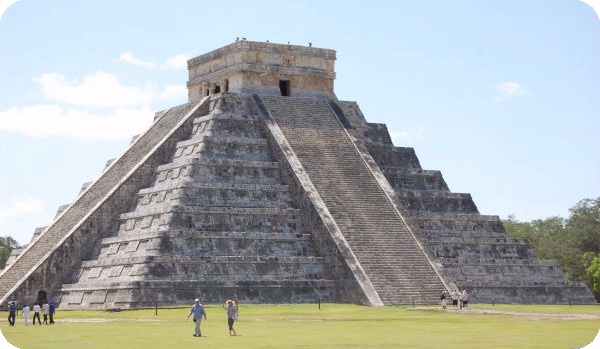 There's something about certain locations in the world that seems to bring out a spiritual aspect in people. There are places all over the world like this from the Pacific Islands to Jamaica. Although you do not need to follow a tour or some Jamaica vacation packages to find these places it can definitely help you in your travels. For myself I felt that way when I visited a little known coastal town in South Korea called Yeosu. I was drawn there because there because I read about a Buddhist temple that was built on a cliff side overlooking the Pacific ocean. The location must have been intensely spiritual for the Buddhists monks to build a temple on the side of a steep cliff, and being there myself was a wonderful experience. I liked it so much I went back a second time a year later. In the case of Isla Mujeres in Mexico the island is sacred to Ixchel (a Mayan Moon goddess) and traditionally a place for healing rituals for the Mayan people. Evidently the people thought the place was special and atmosphere/landscape there had a special spiritual significance. Sometimes nature is so beautiful it elicits an emotional and spiritual response in the viewer. In ancient times people would become religious pilgrims and travel long distances to places of worship. Its arguably the origin of tourism in the first place. People want to visit beautiful places and feel some sort of spiritual connection. For myself, I've seen photos similar to the one below of Myanmar in South East Asia where temples dot the jungle landscape for miles and miles around. That to me is just awe inspiring and its a testament to hundreds of years of pilgrims visiting the region to appreciate it for both its natural beauty and spiritual meaning.
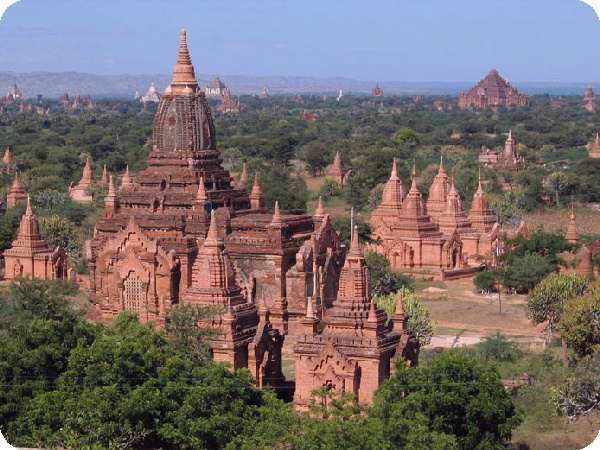 Thus it sparks the idea, if these places are so spectacularly spiritual because of their fantastical natural elements (both in terms of landscape and wildlife), it makes a bit of sense that people build such temples because the landscape surrounding them somehow inspires them to build. Not to destroy what is around them, only so they can appreciate it better with greater comfort. Call it the one underlying factor of civilization... its all about comfort and making things easier. Except in our modern culture we've become so obsessed with trying make things easier through the use of mass communication and technology that we sometimes need a break from all the computers, BlackBerries, Facebook and such. They're not making our lives any easier, if anything they're making our lives more complicated and hectic. It becomes one of the reasons why we want to go on vacation in the first place. Thus what we need is the perfect balance of civilized comfort, with the natural beauty of the earth around us. That concept seems to be largely what women's retreats are about. All the comforts and leisures of a resort, but with a closer tie to the surrounding and spectacular-to-look-at natural world. Back to the Isla Mujeres Women's Retreat one of the principal offerings mentioned above is the Women's Circles, which are essentially time for women to chat in an open atmosphere, share their stories, compare lives and make some new friends. Sometimes there are age gaps in the women present, but that is a good thing because it means there is a sharing of wisdom and youthful optimism. Sometimes people get stuck in a rut and they need a break, some intense thought and discussion, and then they can make some changes in their lives for the better.
The local area of Cancun also has scuba diving, zip lining and a variety of leisurely activies and nightlife for people to check out. If you're anything like me you won't get bored easily in such a place and will be disappointed when your visit seems to be over too soon. Now obviously such places can also be quite romantic. Some women might be more inclined to bring their husband or boyfriend with them when on vacation. But that is not the point in the case of a women's retreat. The focus is more on YOU, getting in touch with yourself and finding some more spiritual meaning in your life. On the other hand I don't understand why we don't all live in such beautiful tropical paradises... Seriously, why are we building cities in Canada when we could be living on a tropical beach somewhere? Or maybe the relaxed atmosphere would cause us to just want to meditate and enjoy ourselves all the time? I am not saying that is a bad thing. Sounds quite nice compared to slaving over a computer every day. Regardless of where you go to retreat from your regular life, remember you can always go back to that place again to experience the beauty once more.
The Importance of Travel Insurance: Protecting Your AdventuresBy C. G. T. Patto - June 2023. Traveling is an exhilarating experience that allows us to explore new destinations, immerse ourselves in different cultures, and create lasting memories. However, unforeseen circumstances can quickly turn a dream trip into a nightmare. That's where travel insurance comes into play, offering peace of mind and financial protection against the unexpected. Let's delve into the importance of travel insurance and why it is a wise investment for all travelers. Medical Emergencies One of the most crucial aspects of travel insurance is its coverage for medical emergencies. Falling ill or getting injured in an unfamiliar location can be daunting, especially when you're far from home. Travel insurance provides essential medical coverage, including hospitalization, emergency medical evacuation, and repatriation, ensuring that you receive necessary medical attention without incurring exorbitant expenses. Trip Cancellation and Interruption Life is unpredictable, and even the best-laid travel plans can be disrupted. Travel insurance safeguards your investment by covering trip cancellation or interruption due to various reasons, such as illness, injury, family emergencies, natural disasters, or even airline strikes. With the appropriate coverage, you can recover non-refundable expenses, including flights, accommodations, and pre-booked activities, minimizing financial losses. Lost or Delayed Baggage Imagine arriving at your dream destination only to discover that your luggage has been lost or delayed. Travel insurance provides coverage for lost, stolen, or damaged baggage, reimbursing you for necessary clothing, toiletries, and other essentials while you wait for your belongings to be returned. This coverage alleviates stress and allows you to focus on enjoying your trip. Travel Delays and Missed Connections Flight delays and missed connections are unfortunate but common occurrences in travel. Travel insurance compensates for additional expenses incurred due to extended delays, such as accommodation, meals, and transportation. It ensures that unexpected hiccups don't disrupt your travel plans entirely and provides a safety net for unforeseen circumstances. Emergency Assistance and 24/7 Support Travel insurance often includes emergency assistance services, offering round-the-clock support to travelers in need. Whether you require medical advice, translation services, or help finding local resources, these support networks are invaluable when navigating unfamiliar territories. Having access to professional assistance can alleviate stress and ensure a smoother resolution in times of crisis. Adventure and Specialty Coverage For adventure enthusiasts, travel insurance can offer specialized coverage tailored to specific activities such as skiing, scuba diving, or hiking. These policies provide additional protection for potential risks associated with high-intensity or extreme sports, ensuring that you can pursue your passions with confidence. Liability Coverage Travel insurance may include personal liability coverage, protecting you against legal expenses and damages if you accidentally cause injury to others or damage property while traveling. This coverage provides crucial financial protection in case unforeseen incidents lead to legal disputes. Final Thoughts Travel insurance serves as a vital safety net, protecting travelers from the unexpected and ensuring a worry-free experience. While it may seem like an added expense, the benefits and peace of mind it offers far outweigh the cost. From medical emergencies to trip cancellations, lost baggage, and travel delays, travel insurance provides comprehensive coverage and assistance that can save you from significant financial burdens and unforeseen challenges. So, before embarking on your next adventure, consider investing in travel insurance to protect your travel investment and enjoy a stress-free journey.
Website Design + SEO by designSEO.ca ~ Owned + Edited by Suzanne MacNevin |
|||||||||||||||||||||||||||||||
